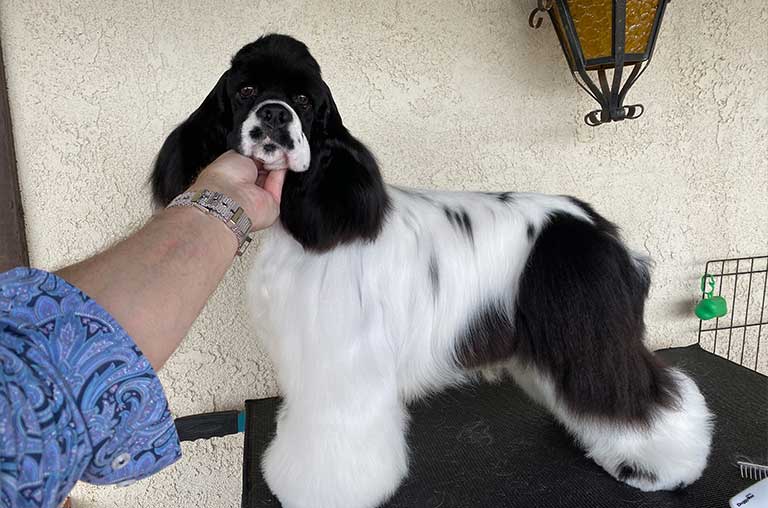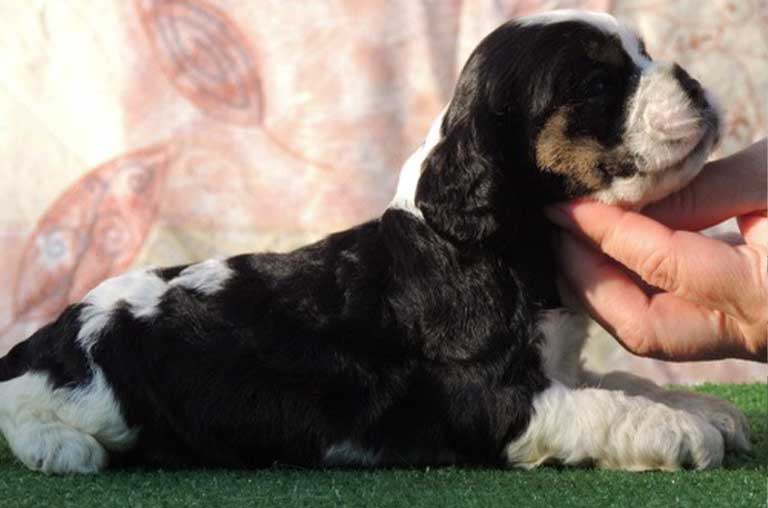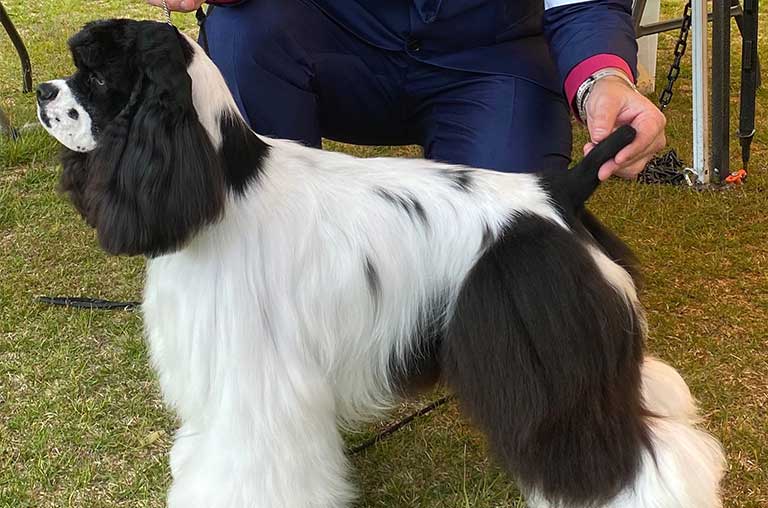Cocker spaniels were first bred as hunting dogs and are easy to train. However, you may be inadvertently sabotaging your dog’s training. Find out how these common Cocker Spaniel dog training mistakes might be causing to disengage.
7 Common Cocker Spaniel Dog Training Mistakes to Avoid
The most common expected thing for Cocker Spaniel dog owners is dog training should be easy. But it is not easy for the dog owner if it is the first time for him. People make mistakes when they are training their dogs. Even trainers do mistakes. Check the most common Cocker Spaniel dog training mistakes that should be avoided in training time.
1. Harsh training
Cocker spaniels are sensitive. They form a close bond with their owners and are eager to please them. But they don’t respond well to harsh training. Never punish your Cocker spaniels for making a mistake. Harsh training can cause your dog long-term behavioral damage. It can cause a dog to become aggressive and snap or to disengage and ignore its owner.
2. Negativity in training session
Don’t respond negatively when your cocker spaniel makes a mistake. It will take time for your dog to learn new things. Avoid telling your cocker spaniel ‘no’ and shouting or sounding annoyed if training sessions are not going well. A dog that feels like he can never please you will view your training sessions as a time when you are angry or disappointed with him. He will disengage from the sessions. He will stop trying to learn, afraid to try in case he gets it wrong and makes you cross with him.
3. Negative body language and tone
Your cocker spaniel is very sensitive to your body language and tone. If you become stressed, your dog will become stressed too and it will be harder for him to learn. Be patient and make positive movements and sounds. Your cocker spaniel wants to please you. Keep trying and he will get there. Cocker spaniels respond well to praise. Always be positive in training sessions. Give your dog lots of praise. Tell him he is a ‘good boy’. He will respond by trying hard to please you. These common training mistakes might be causing your cocker spaniel to disengage so learn to avoid them.
4. Confuse cocker spaniel by giving attention to unwanted behavior

Rather than shouting, it is better to ignore unwanted behavior, such as jumping up. Dogs want our attention. Even negative attention can seem rewarding to them. It is better to ignore bad behavior and praise good behavior, such as praising when he calms down and sits. Of course, sometimes we need to take action, but do this while ignoring your dog. If your cocker spaniel chews on something he shouldn’t, remove it from his reach while avoiding eye contact. Remember your dog doesn’t always know what he should or shouldn’t be doing. It is up to you to gently teach him by the way you respond. It will help if you dog-proof your house, at least in the early stages until your cocker spaniel has some training.
5. Not being in tune with your dog
Be aware of your cocker spaniel’s body language. Your dog may become anxious if a training session goes on too long. Especially if they are young or are finding it hard to master the skill you are teaching. Signs of anxiety may include tucking his tail between his legs or pinning his ears back. He may stop paying attention. If you see that your cocker spaniel is becoming anxious or his attention is wandering, take a short break. Go for a walk or play a game so he can de-stress.
6. Training sessions are too long or boring
Cocker spaniels are smart which makes them easier to train. But they are also excitable. Keep training sessions short so your dog doesn’t become overexcited as this could affect his learning. Short training sessions, repeated often, with lots of praise and rewards work best. Cocker spaniels also love to play. Keep training sessions fun. Training your dog should be fun for both you and your dog.
7. Inconsistent Training Session

It is very important that you are consistent with your commands in your training sessions. If you are not consistent your dog will get confused and be unsure how to please you. This could lead to him becoming frustrated and disengaging. It isn’t possible for your dog to learn unless you are consistent. This applies to the behavior you want to encourage or discourage too. If you sometimes ignore your dog when he jumps up until he sits down, but at other times respond positively to him jumping up, he will never learn not to jump up. It is also important everyone in your household knows what behavior to encourage or ignore. It is easier for your dog to learn if everyone in the household is consistent. Be aware that these common training mistakes might be causing your cocker spaniel to disengage.
Tips to Avoid Cocker Spaniel Dog Training Mistakes
Decide when you first get your cocker spaniel what behavior you want your dog to learn. Start training early before he learns bad habits. If your dog has been allowed to behave in a certain way, and you then decide he should behave a different way, your dog will understandably be confused. Be consistent from the start.
Cocker spaniels are very fond of food. Food rewards are a great way to train. But be sure rewards are instant, while your dog is engaged in the behavior you are training. Giving a treat too late is confusing for your dog. He won’t associate the treat with the behavior you are trying to reinforce.
Don’t introduce advanced tricks too early. It can be tempting to want to teach your smart cocker spaniel cool tricks. But make sure he has successfully mastered the basic training like obedience training, essential command training, potty training, avoiding other dogs and crate training before you try to teach him anything more advanced. Trying to teach too much at once will only confuse your dog and make it harder for him to learn even the basics. Be patient.
Final Verdict
Cocker spaniels are smart, energetic, and fun-loving. They love to play games and please you. Keep training sessions short and repeat them often. Make them fun and have positive experiences. Your dog will then respond well. Remember that praise and rewards work best with cocker spaniels. Hopefully, now you are aware of common Cocker Spaniel dog training mistakes and will not make any while training your chocker Spaniel.

Leave A Comment